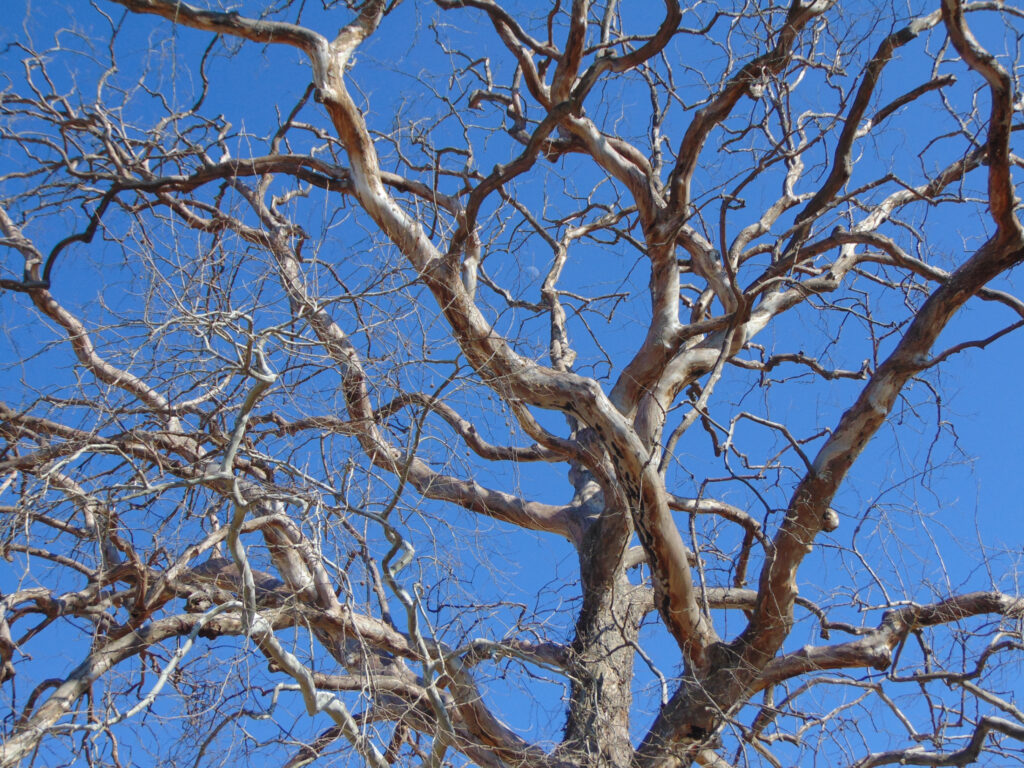
I think it matters that someone stops
to look in admiration. And I think
it makes the looker much bigger inside
as well.
~ A Joy Warrior's Journey

I think it matters that someone stops
to look in admiration. And I think
it makes the looker much bigger inside
as well.
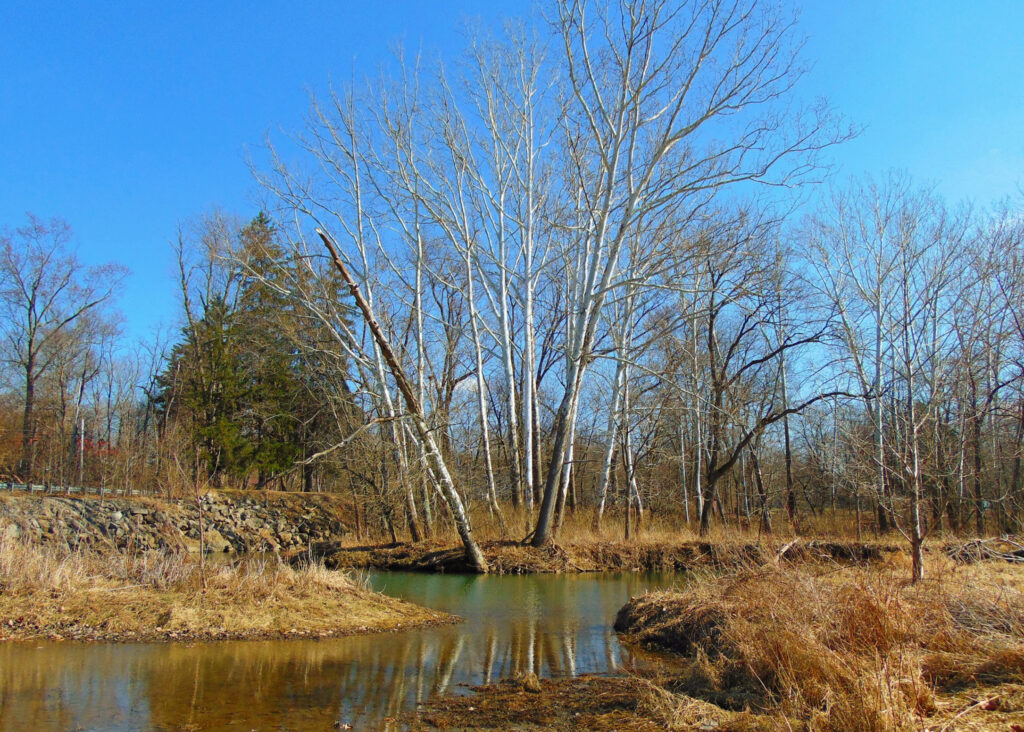
Once again, the sun irresistibly called me.
I surveyed potential destinations and chose one,
a little lake maybe twenty miles northwest of here
down two-lane country highways edged by farms.
And on the way back home, I decided, I’d ramble,
taking whatever road called me. The lake sparkled
in the sun. Migrating geese honked from its far shore.
I stood beneath a maple that sported swollen buds,
and for several minutes, I forgot. I was back in time,
in Before World, the dancing light, the wind, the geese
holding me in their mesmerizing spell. As I traveled
toward home, Before World lured me down side roads
I hadn’t traveled in years. I parked on one and walked
a field full of memories. There, the sycamores, and
downstream the spot where a bridge used to cross
and you could walk to an old cemetery up the hill.
In summer, this whole place was filled with daisies.
It was all so vivid, like images in a lucid dream.
We take them with us, I realize, images of all we’ve seen.
The thought comforts me as I drive home, the cows
grazing in a field breaking my heart.
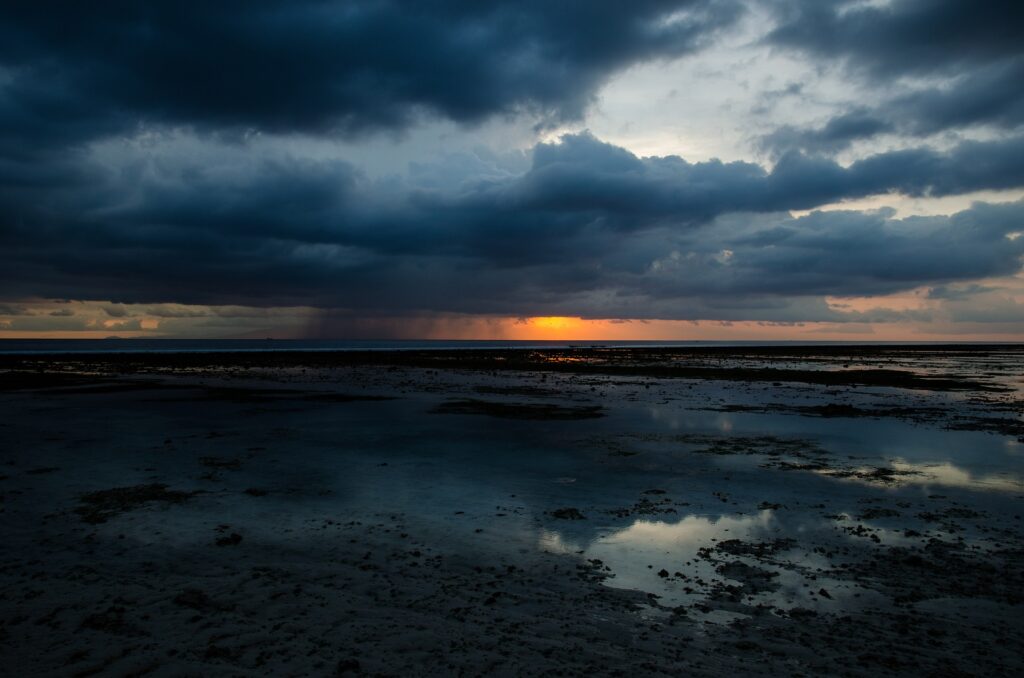
“Okay,” the voice said, “you want to be a Joy Warrior, do you? Well then, take this! See what you can do.”
After the chemical bomb was set off in East Palestine, Ohio, and its cloud drifted over my nearby Pennsylvania house, it took two weeks for me to get my bearings and begin to comprehend what had happened. And I do mean ‘begin.’ The impact and repercussions of it have significantly altered my life, and the lives of countless others. In fact, I noticed today that I’m starting to think of time as “Before” and “After” now. That’s how big a deal it is.
Once I realized that I was still standing, I decided the best thing I could do was to share what I’m experiencing as authentically as I can. I’ll start here by admitting that I’m still in shock. And I’ll also say right up front that I don’t intend to bother you with the politics of it. I am saying that I think it might be interesting (and for me, healing) to share some of my personal experiences and processes as I find my way in this strange new world. Hey, it feels like this, and like that, and sometimes I notice that I . . . that kind of thing, and what it might mean about us all. See what it’s like to take the Joy Warrior test as I find my way through this strange, changed world.
I started putting it into words here on my blog a week ago in a piece I wrote about being at the wetlands on the day the trains were still. I call it “Did They Know?”
Privately, I call my daily contributions to my blog “Love Notes.” They’re the heart of my Notes from the Woods, and I tuck these Sunday Letters here, too. (Freely share the link with your pals, by the way.)
I’m so happy to be writing to you today. I always am, but especially today. Knowing that you who are my subscribers expect to see my letter in your Sunday email let me weave a thread of continuity through my days. My daily posts do that, too. “Normal” things. It’s good to practice as many of those as you can, to bring your good habits and customs along as you walk through your days. They give you a sense of stability when the rest of the world is in flux. That’s one thing I’ve noticed.
See, I think of what I’m going through as an echo of what everybody else is going through, too. You’re going through unsettled times as much as I am. Everybody’s life has it’s trauma. It comes with the ride. We’re in this fix together, dear humans. Let’s remember that, regardless of circumstances, and be kind. I know that much. Not a whole lot more right now. But kindness? Always. Always.
You matter you know. Smile some this week. Okay?
Warmly,
Susan
Image by Rudy and Peter Skitterians from Pixabay
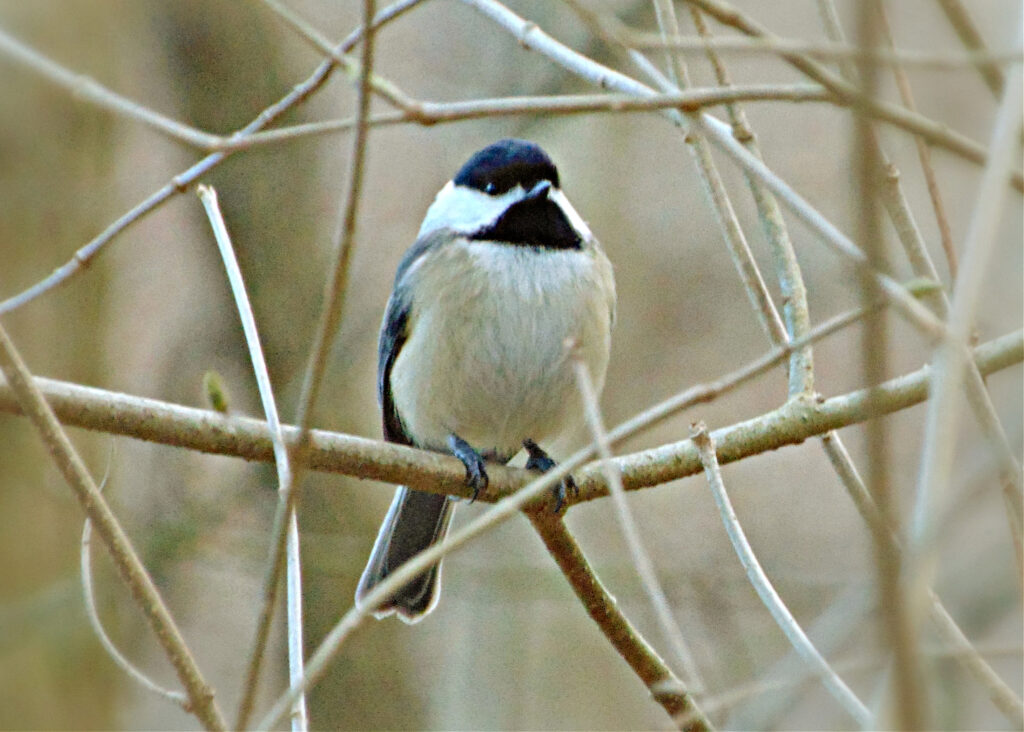
As I step from my car, the chickadee darts
from the spruce to the lilac and perches there
singing his cheery hello. No matter what,
he always makes me smile, and I chirp back
and we have a little conversation.
Before – I measure time that way now,
as “before” and “after” – Before the fire,
the uncontrolled explosion, a dozen came, more,
titmice mixed in, bouncing from branch to branch,
chattering away, grabbing some seeds.
Now it’s one or two, sometimes three.
I miss them.
But this precious one is chirping as if he is so glad
for morning, and seeds, and the lady who chirps back
and smiles. No matter what.
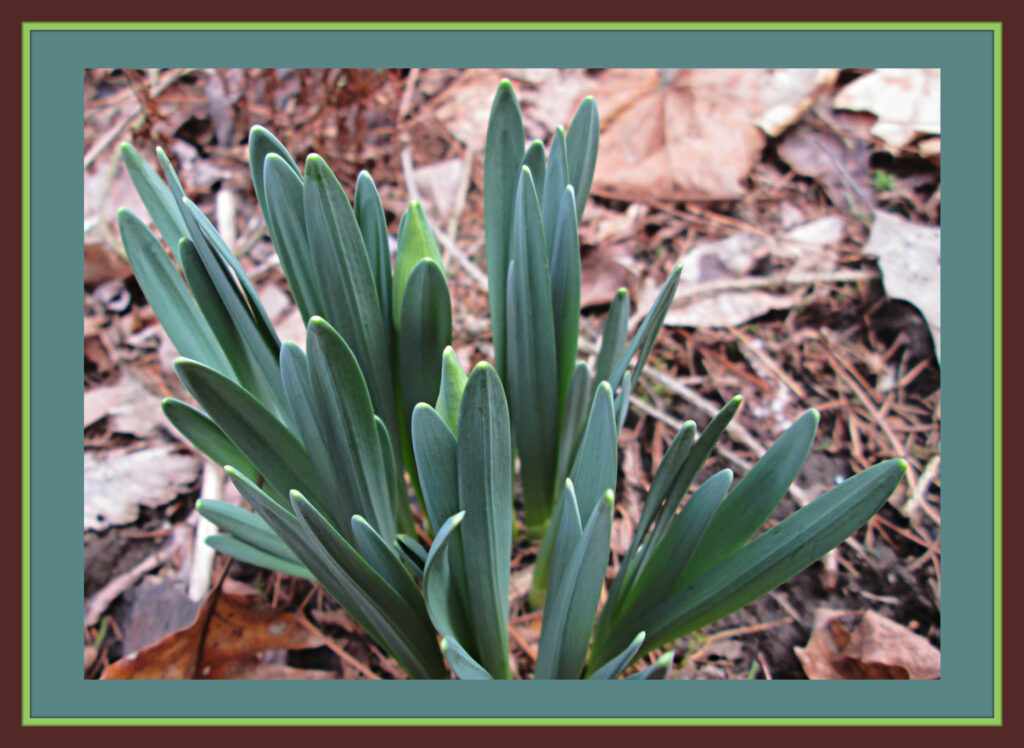
My friend lives at the base of gently rolling hills
that serve as farmland for alternating crops of corn and soy.
Today he told me he thinks that Josie’s getting ready to plant.
He had the machinery out yesterday. First time this year.
As I drive the curving road that passes through the place,
sprawled from horizon to horizon all the way from the woods
to the turnpike, I try to brush the questions from my mind.
But they’re stuck like bugs on a windshield, and all I can do
is look past them for now. So I peer down the timeline,
visualize these fields bright with sprouting crops
that shine in a late spring sun. When I get home
I see that my daffodils are singing a fanfare
for the coming season. The questions remain.
But life is little more than questions, one after another.
This is my world now, and daffodils are sprouting.
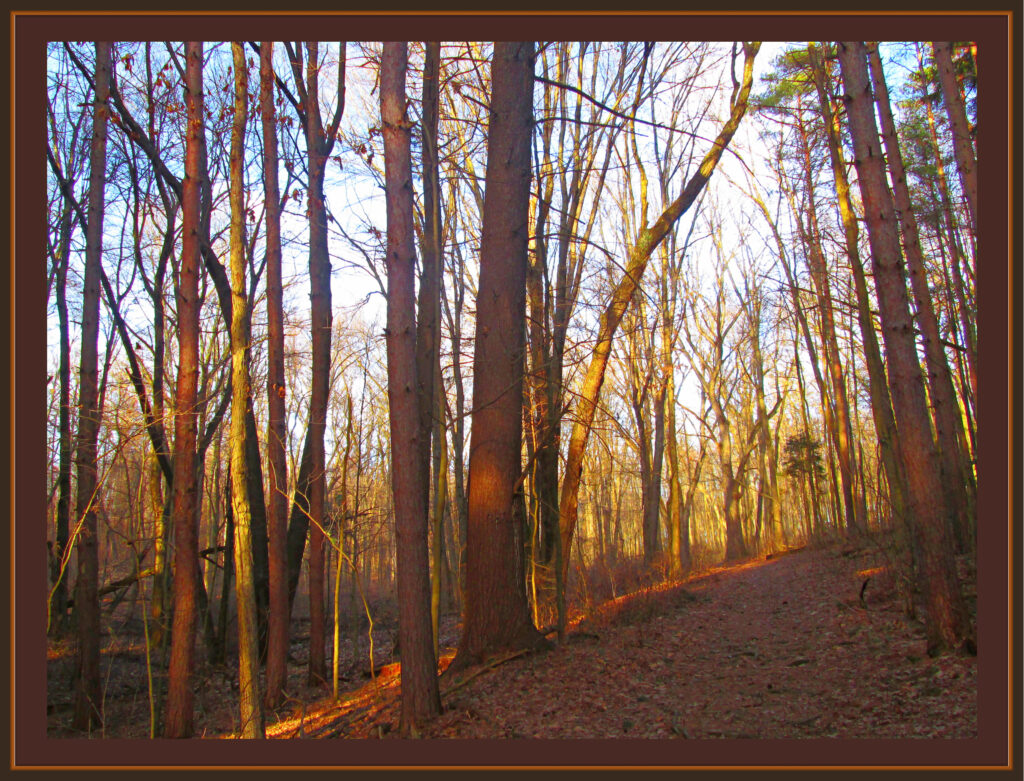
The forest is a good place to take your troubles.
When you walk there, you have to leave them behind,
to pay attention to the rough terrain, to the rocks and roots
buried beneath the carpet of fallen leaves. And the leaves
themselves attract your notice with their varied shapes
and colors so artfully arranged. The bark of the trees
draws you with its dance of textures and hues that travel
all the way up until they touch the sky. And all the while,
there’s the wondrous silence, torn now and then
by the wondrous calls of crows. You can pretend
that you are a tree and stand perfectly still and sense
the strength and wisdom that surrounds you.
You can pretend that you’re breathing clean air,
that the poisons coating everything around you, embedded
in the soil beneath your boots, aren’t really there.
And the trees will take your fear and sorrow
and exchange them for their peace.
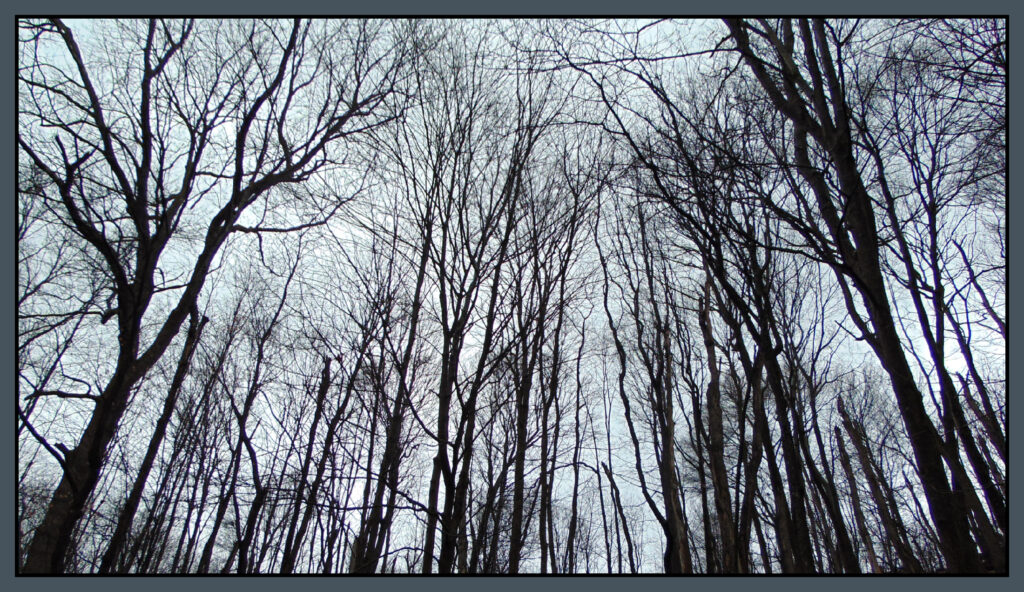
From the back porch I look through the rain
at the trees on the southern hill, dear friends
of mine for over 30 years. I tell them the
news of the day. I wonder if our goings-on
shock them, or if they just roll their tree eyes,
or if they even care at all. But I tell them anyway.
The Important Ones finally came to the town,
some rousing hope; some rousing ire.
For some hours at least, hope won, the glad
of it rising in great cheers to the sky.
Freezing rain pelted the people, but they didn’t care.
Thinking about the rain was for another day.
Tomorrow the awful questions would return,
the unsolvable problems. But tonight
they would sleep with ribbons of hope floating
through their dreams. Hope. At last. Hope.
I couldn’t tell what the trees thought of my tale.
I noticed that their swelling buds softened
their silhouettes against the gray afternoon’s sky.
Spring is coming, I whispered to myself.
Regardless.
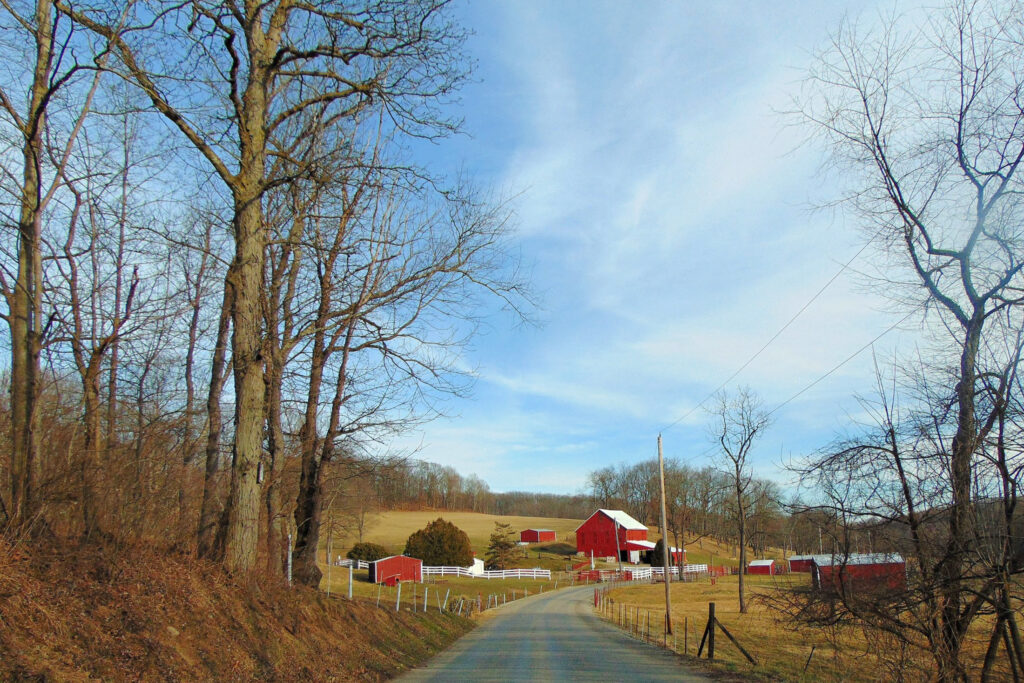
The soil with all its little minerals
and earthworms and burrowing things
and bugs whose names I do not know,
and grasses of every kind and weeds
and all who feed on them, all those
who creep and fly.
The creek with its minnows and trout,
and the streams and lakes and rivers,
And here, these picturesque farms
with their lives and their wonderful stories,
and the woods, oh my darling, the woods.
It all seems now like a picture in a book
on a quickly turning page. Red barns, gold fields,
blue dioxin skies.
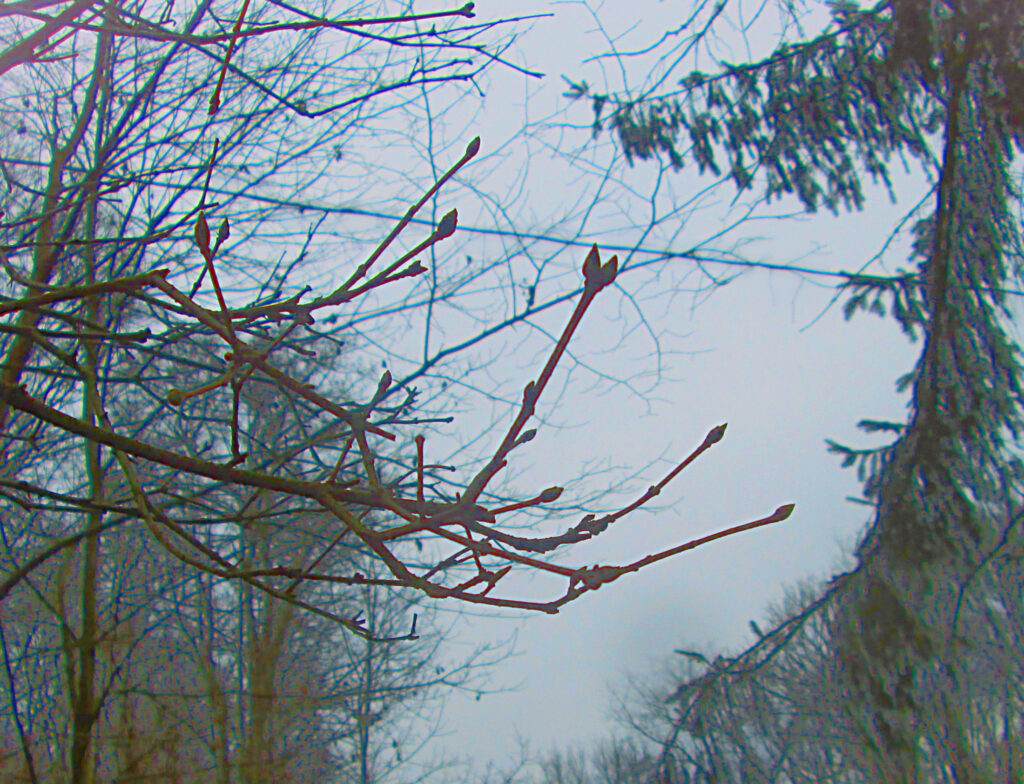
As I walk through the mild air to see the swelling lilac buds,
raindrops fall. They feel cool and heavy on my face.
Perhaps, I think, they will wash the toxins from these buds
and from the needles of my old spruce friends.
Still, the poisons will remain in the soil.
For centuries, I’m told.
Walking with death so nearby lets you appreciate life.
Every little detail of every ordinary thing
becomes precious, beyond words.
The sorrow is deep; the miracles are without number.
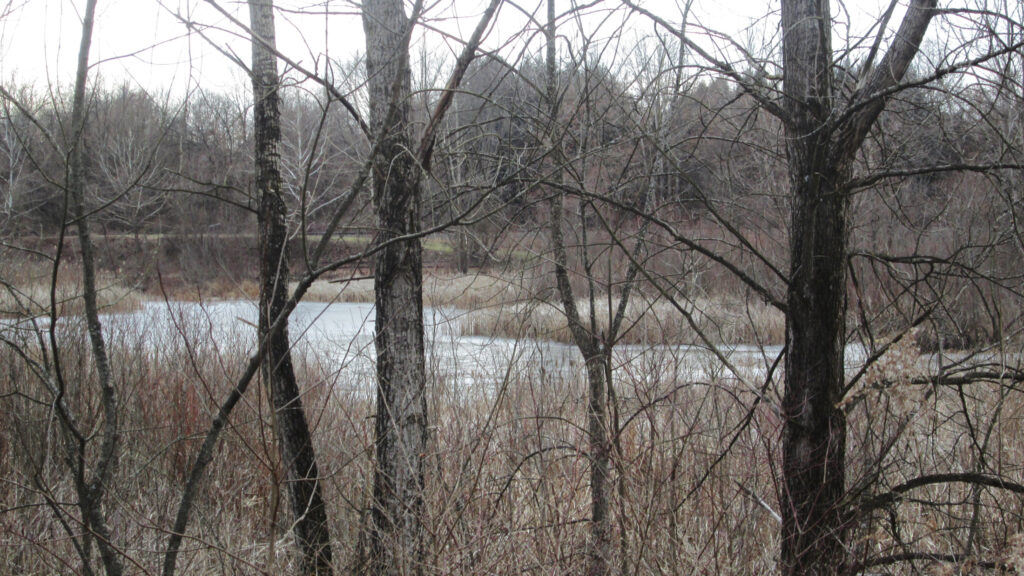
On the second day after the train derailed,
I walked the circumference of the wetlands,
a mere five miles away from where black plumes
of toxic smoke were rising to meet the thick clouds
of the sky. It was a cold day, and colorless.
Whatever birds had been there, scouting
for places to build their nests, to raise their young,
had gone, taking their mating songs with them. And the songs
of the trains were absent, too, the rhythmic clatter and squeal
of iron wheels on the iron tracks that stretch above the pond,
the penetrating notes of their whistles as they barrel across
the weaving country roads half a mile away.
As they stood there in stoic silence, did the trees know?
Did the birds sound an alarm as they took flight?
Was there anything in the wind’s scent, in its whispers,
that hinted that the worst was yet to come?
How could they have known, how could any of us
have known, that while the trains would soon return,
the silence of the living things would go on and on and on.